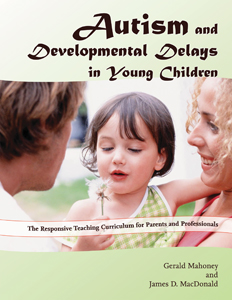And I did find a whole lot of fascinating stuff. The most important thing - or take home message - from all the reading is 'Floortime' - another interesting intervention that seems to be worth considering for families with young children who have special needs. Floortime, is at the heart of a comprehensive program for infants, young children, and families with a variety of developmental challenges including autistic spectrum disorders. This comprehensive program includes working on the functional emotional developmental levels, the individual processing differences and creating those learning relationships that will help the child move ahead in their development.

In a typical Floortime session, you will...
1. Follow the child’s lead - This means that you let the child decide what he or she wants to do and you play along.
2. Challenge your child - Dr Greenspan said "Once you’ve followed your child’s natural interests, challenge your child to create one step further from the natural direction of play"
3. Expand on the action or interaction to include all aspects of the sensory system, more interactions, and more emotional involvement.
1. Follow the child’s lead - This means that you let the child decide what he or she wants to do and you play along.
2. Challenge your child - Dr Greenspan said "Once you’ve followed your child’s natural interests, challenge your child to create one step further from the natural direction of play"
3. Expand on the action or interaction to include all aspects of the sensory system, more interactions, and more emotional involvement.
So that's just the gist of what Floortime is all about. Apparently, it works for all children who have developmental challenges.
For an overview on Floortime, please read Dr Stanley Greenspan's article here. Also check Dr Greenspan's site here.
If you are interested in a counter-view (just to be unbiased) please read this article.
I can't wait to start reading the book and working on the ideas that Dr Greenspan has suggested in it. More on this in a future post.
Thanks for reading
